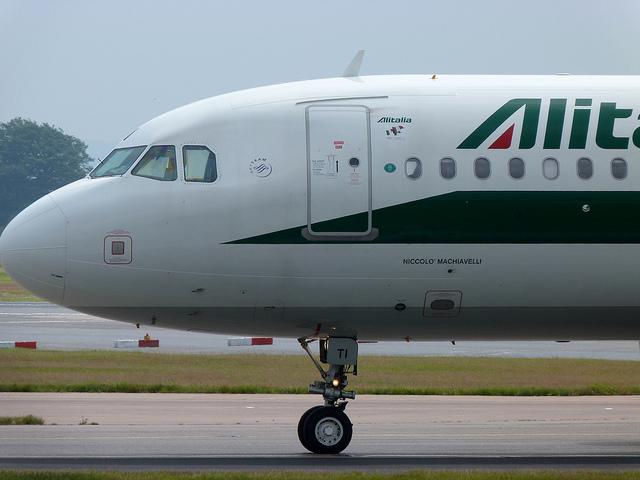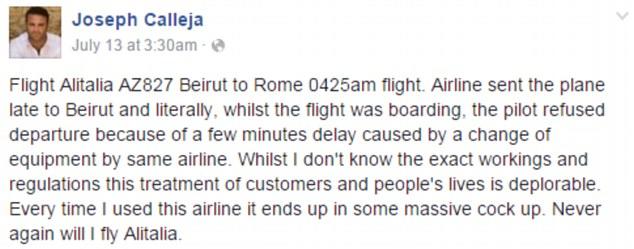0 min left
16-hour Delay Because Pilot ‘Too Tired’ to Fly

An Alitalia flight was delayed for more than 16 hours after the pilot allegedly refused to fly the plane because he was ‘too tired.’ Flight AZ827 was due to fly from Beirut, Lebanon to Rome, Italy when the incident occurred.
According to reports, passengers had already boarded the plane when the pilot made the decision and were later forced to disembark. Maltese Opera singer Joseph Calleja took to Facebook to complain.

[Photo: AeroInside]






















Good for that pilot, the right call to make, you are not going to take of with a big plane full of passengers when you aren't up for the job! 100% in support of this action and Mr. Calleja needs to get a life!
It happens - a totally fit person can sometimes "crash" instantly after a long period of time zone jumping.
In the United States, every airline pilot is required to certify they're fit for duty before departure. The schedules flown by many are quite fatiguing. As a pilot in the U.S., the two hardest parts of my job involve getting a legal airplane, with a legal crew safely to the runway to take off; and being fit for duty. The flying part is easy once we get going. Over a typical four day trip, we may flip our body clocks multiple times. Flight decks are loud; airplane air is dry. Airline and airport meals are not always the healthiest making it hard to fuel your body properly. Hotels are often near the airports with airplane noise, uncomfortable beds and poor facilities for relaxing. We do the best we can to manage our fatigue level so we can be fit for duty, each time, every time. I try hard to eat a healthy diet, exercise and give myself time to unwind each day. Often my mind races and we're forcing ourselves to sleep when the body isn't ready. Every day I start off with the most potential energy and that chips away as the day progresses. Often we're doing multiple flight segments per day and every time we open the door, we've opened a pandora's box of what could go wrong. Maintenance delays, air traffic control, operational issues etc. All those issues must be resolved before departure. Often the flight crew is leading and directing those efforts with help from their team including cabin crew, ground staff, maintenance, dispatch, load planning, air traffic control and so on. The fatigue level creeps up significantly during operational issues. We have to recognize our fitness for flight before we depart and evaluate it for the entire flight. If I'm about to depart on a four hour red-eye flight after doing a leg prior where we were dealing with significant weather, operational issues and poor day sleep, I too may not be fit when we land at our final destination. I have to evaluate the entire upcoming flight to ensure I'll be able to safely complete the segment. I may be safe to depart but not safe for landing. While my flying partner and I are each other's redundant system, you don't want to be useless during the final phases of flight. In response to the original question, it sounds like the pilot made the right call. None of us want to delay your flight if we don't have to. Trust me, we want to get home just as much as you do. Sometimes, because of situations beyond our control, it isn't safe for us to continue with our duty period and we call in fatigued. The flying public rarely gets the inside story as to why the decision was made. Gate agents often are quick to blame the pilots in a situation like that. In this case, the right decision was made. It is better to arrive late, than not arrive at all.
+1 This was absolutely the correct thing to do.
The question is was he too tired, or just didn't want to fly? I highly doubt he was ready and fit to fly one minute, and then all of a sudden too tired the next. Also if he didn't get sleep before his scheduled flight that is his fault.